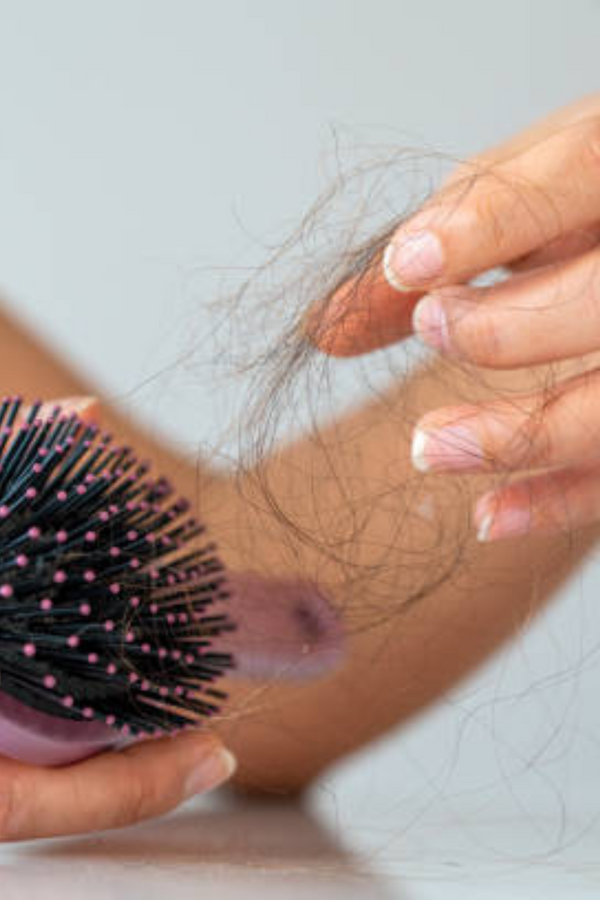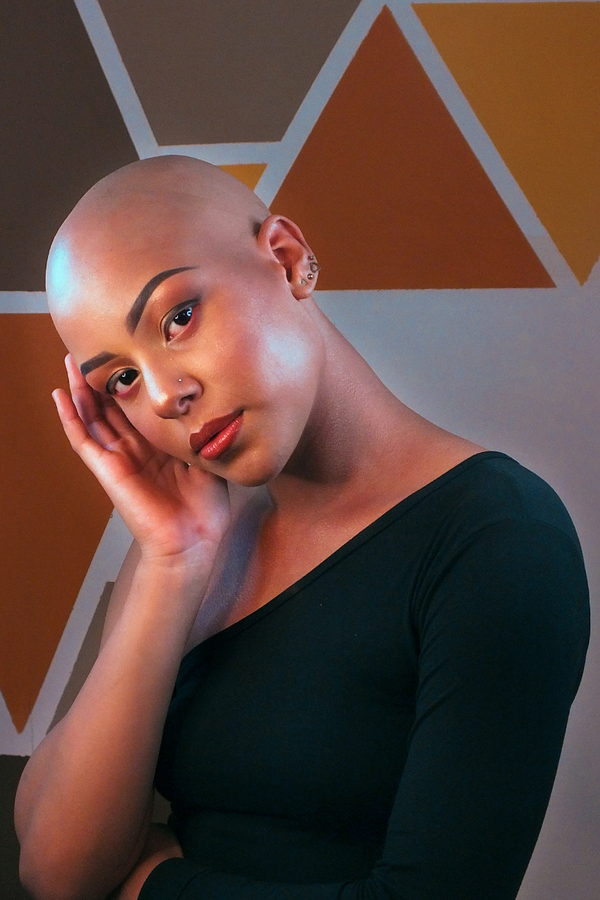Understanding the 5 Roots of Medical Hair Loss: Causes and Treatments

Are you or someone you know experiencing medical hair loss? We understand how challenging it can be, but it's important to know that you're not alone. Medical hair loss affects many individuals, and at Monica Nicole Hair, we believe in providing comprehensive support and solutions.
First, let's talk about the causes of medical hair loss.
1. Hormonal Imbalances: Hormones act as chemical messengers in the body, regulating various functions, including hair growth. Imbalances in hormone levels can disrupt the normal hair growth cycle, leading to hair loss. Conditions such as polycystic ovary syndrome (PCOS) can cause an excess of androgens (male hormones) in women, resulting in thinning hair on the scalp and sometimes excess hair growth on the face and body. Thyroid disorders, such as hypothyroidism or hyperthyroidism, can also impact hair health by altering hormone levels. Additionally, significant hormonal changes during pregnancy and menopause can lead to temporary hair loss. Restoring hormonal balance through medical interventions and lifestyle adjustments can help mitigate hair loss caused by hormonal imbalances.


3. Autoimmune Conditions: Autoimmune conditions are a group of disorders in which the immune system, which is designed to protect the body, mistakenly attacks its own cells and tissues. While these conditions primarily affect specific organs or systems, they can also have an impact on hair health. In this article, we will delve into the relationship between autoimmune conditions and hair loss, exploring how these conditions can lead to hair-related challenges and strategies for managing them.

4 Autoimmune Conditions:
The immune system plays a crucial role in defending the body against harmful invaders like bacteria and viruses. In autoimmune conditions, the immune system loses its ability to distinguish between foreign invaders and the body's own cells, leading it to attack healthy tissues. There are various autoimmune conditions, some of which can influence hair health:
-
Alopecia Areata: This autoimmune disorder targets hair follicles, causing sudden and often unpredictable hair loss. It typically manifests as round or oval bald patches on the scalp, eyebrows, or other areas of the body. In severe cases, it can progress to alopecia totalis (total scalp hair loss) or alopecia universalis (total body hair loss).
-
Lupus (Systemic Lupus Erythematosus): Lupus is a chronic autoimmune disease that can affect multiple organs and tissues, including the skin. Some individuals with lupus may experience a type of hair loss known as discoid lupus erythematosus (DLE), which leads to scaly patches and hair loss on the scalp.
-
Hashimoto's Thyroiditis and Graves' Disease: These autoimmune disorders affect the thyroid gland, which plays a critical role in regulating metabolism. Hair thinning and loss can occur as a result of hormonal imbalances caused by these conditions.
-
Rheumatoid Arthritis: While primarily a joint disorder, rheumatoid arthritis is an autoimmune condition that can impact the skin as well. In some cases, it may lead to hair loss.
4. Scalp Infections: Fungal or bacterial infections of the scalp, like ringworm, can lead to hair loss if not properly treated. The scalp, a critical part of our skin and hair health, can fall prey to various infections that not only cause discomfort but also have potential consequences for hair growth and overall well-being. In this article, we will delve into the world of scalp infections, exploring their types, causes, symptoms, and effective management strategies to ensure optimal hair health and comfort. We recommend seeking medical attention to address these conditions effectively.

5. Nutritional Deficiencies: The health of your hair is closely linked to your diet. Nutritional deficiencies can deprive hair follicles of essential nutrients required for healthy growth. For instance, iron deficiency (anemia) can lead to reduced oxygen supply to the hair follicles, resulting in weakened hair and increased shedding. Deficiencies in vitamins like biotin, which is essential for hair health, can also contribute to hair loss. Likewise, inadequate intake of zinc, vitamin D, and protein can negatively impact hair growth. A balanced diet rich in a variety of nutrients is crucial to maintaining strong and vibrant hair.

It's important to note that many cases of hair loss are multifactorial, meaning they can be influenced by a combination of these factors. If you're experiencing significant hair loss, it's advisable to consult a healthcare professional or a dermatologist to determine the underlying cause and receive appropriate treatment recommendations.
The Emotional Journey of Medical Hair Loss
Hair loss, especially when it is due to medical reasons, can take a toll on one's emotional well-being. At Monica Nicole Hair, we understand the unique challenges that individuals face throughout this journey. We provide a safe space for you to express your concerns and offer support and guidance to help you regain your confidence.
Treatment Options and Support
While medical hair loss can be distressing, it's important to remember that there are treatment options available. At Monica Nicole Hair, we offer a range of solutions to help you restore your self-esteem:

- Premium Human Hair Wigs: We offer a collection of high-quality, natural-looking wigs that can seamlessly integrate with your existing hair or provide full coverage. We aim to provide you with a solution that not only looks stunning but also feels comfortable and secure.

- Ongoing Support and Guidance: We understand that the journey doesn't end with the treatment. At Monica Nicole Hair, we are committed to providing continuous support and guidance throughout your hair loss journey. Our team is available to address any concerns or questions you may have along the way. We also have an online community on Facebook where you can share and see others’ experiences and struggles on their journey of having hair loss.

If you're experiencing any of these, it's crucial to seek medical advice and guidance on how to best address them.
We also understand that medical hair loss can have a significant emotional impact, challenging one's sense of self and identity. It's not uncommon to experience a range of emotions during this journey. We're here to offer you a safe space to express your concerns and provide support to help you regain your confidence.
Medical hair loss doesn't have to define your story. At Monica Nicole Hair, we believe in empowering individuals to regain their confidence and embrace their unique beauty. With our personalized hair restoration plans, premium quality wigs and hairpieces, and ongoing support, we are here to help you navigate the challenges of medical hair loss. Contact us today to take the first step towards reclaiming your confidence and feeling beautiful again.
Credit Source:





